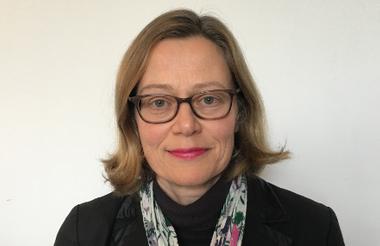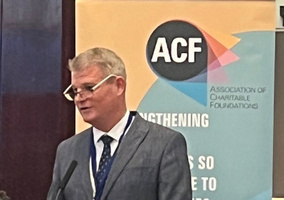It is a “pivotal moment” for foundations to tackle pressing social issues or remain in their comfort zone, the chief executive of the Association of Charitable Foundations (ACF) has said.
Foundations must be “courageous” in the face of a “bleak” picture for the years ahead as organisations recover from the Covid-19 pandemic and during a cost-of-living crisis, said Carol Mack at ACF's conference this week.
This, along with global uncertainty borne from the Russia-Ukraine war, is bound to make anyone fearful, said Mack. However, she believes now is a pivotal time for foundations to be courageous and hopeful.
“Over the next 10 years we can build on this courage and leadership with hope, or we can fall back to our comfort zones in the onslaught of crisis after crisis and fail to seize the potential of this moment.
“My hope and ambition for us as a sector is that we can build on the good work that's began and be ever more courageous and brave as we do so. To use our independence, our money, our power with a strong values-based approach to being courageous with our ideas and thinking. Courageous about how we fund, what we fund and courageous about how we lead and work with others.”
Charitable foundations hold one-third of the assets to the charity sector. But “money in itself can achieve nothing” without strong choices, Mack argued.
“Foundations as organisations have independence, power and privilege. Money is our medicine to deliver change. Overlay that with the strong values that drive you as leaders and as organisations and we have, I would argue, the near-perfect conditions to be courageous.”
People with lived experience or ‘experts in their field’?
In a panel discussion following Mack's speech, Junior Smart explained he believes people with lived experience should just be called “experts in their field”.
Smart is the founder of the SOS Gangs Project, which works to prevent ex-offenders from reoffending and keep them out of the prison system, which was supported by the St Giles Trust.
Regarding the phrases ‘lived experience’ and the ‘co-production’ of services, he said the titles can be counter-productive.
“I personally don’t think we need to have any of those titles. For me, they’re seen as experts within the field.”
Smart also said the involvement of people with lived experience should not be called “co-production” but the “production” of a charity’s services as their insight is essential for producing effective charitable services.
“We need to move past all of that and get them in the driver’s seat,” he said. Earlier on in the ACF panel discussion, he emphasised the importance of “let[ting] go of the reins” as a leader.
Roisin Wood, the chief executive of the Community Foundation for Northern Ireland, sympathised with this view. She explained that in her line of work people told her they want charities to be a “fierce advocate for us” and “not to speak on our behalf, because we've got our own voice, but amplify our voice.”
David Knott, the chief executive of the National Lottery Community Fund, said Smart’s point about experts resonated with him.
“I think we need to be much better as an organisation on this. I think many foundations here too could be bolder about their expertise in organisations to challenge and disrupt. Where do we want to be in 10 years time?”
Chief executive of Oxfam, Danny Sriskandarajah, said that the international aid charity has realised it has failed to put power into the hands of those it serves.
“What we have come to realise is that we have become part of the problem, that we have held onto power, that we don’t genuinely devolve decision-making to the communities and partners we claim to be serving.”
Oxfam is working to change this with its new pledge for change, Sriskandarajah said, so it can “move away from a paternalistic or patronising form of philanthropy, towards one of mutuality and commonality.”
Related articles












